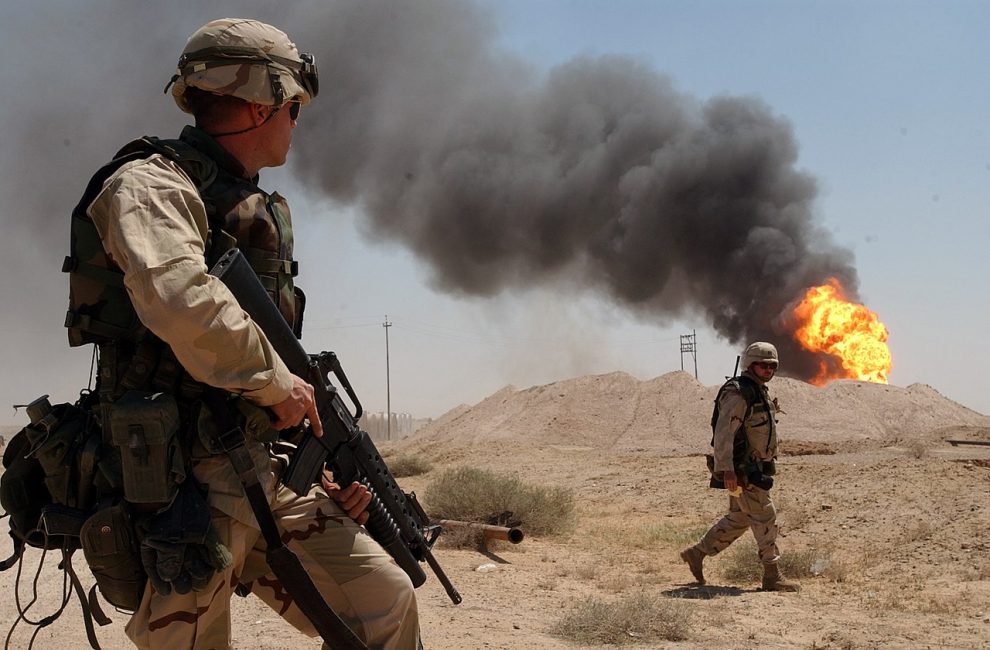U.S. military actions in the Middle East led to instability, systemic issues, and enduring challenges, demanding sincere accountability, reparative efforts, and a commitment to diplomacy for restoring credibility and leadership.
The legacy of U.S. interventions in the Middle East includes destabilized regions, significant civilian harm, environmental degradation, and the rise of radical organizations, all exacerbated by contradictory policies and misinformation. To repair the trust lost and address these consequences, the U.S. must take responsibility by providing reparations, aiding reconstruction, and realigning its foreign policy with transparency and democratic values. This transformative approach can help rebuild its reputation, foster regional stability, and reaffirm its leadership on the global stage.
Admitting Past Mistakes: Deepening Responsibility
The United States’ military interventions in the Middle East have left a profound mark on regional stability and global dynamics. These actions have triggered a cascade of challenges that continue to resonate across the affected regions and beyond. Recognizing the full scope of these consequences and engaging in a sincere and thorough process of self-criticism are crucial for crafting a dignified and sustainable exit strategy. Addressing these mistakes requires a holistic understanding of their causes and effects, which can be explored under several key themes.
The U.S. has faced significant global criticism for its role in disseminating misleading information, particularly during the lead-up to the Iraq invasion. In 2003, the claim that Iraq possessed weapons of mass destruction served as the primary justification for military action. However, this assertion was later debunked, exposing a flawed and arguably manipulated intelligence process. This revelation inflicted serious damage on the U.S.’s international reputation, eroding trust among its allies and fueling skepticism within the broader global community. Acknowledging the role of misinformation in these decisions is a critical first step. To rebuild trust, the U.S. must commit to a transparent, evidence-based approach to foreign policy, ensuring that future actions are grounded in verifiable facts and conducted with accountability.
Civilian casualties and human rights violations have emerged as some of the most devastating outcomes of U.S. military interventions. In countries like Afghanistan, Iraq, and Syria, hundreds of thousands of civilians have suffered the consequences of direct and indirect violence, often exacerbated by indiscriminate airstrikes and drone operations. Beyond these immediate losses, incidents of torture and inhumane treatment in detention facilities such as Guantanamo Bay and Abu Ghraib have cast a long shadow over the U.S.’s reputation as a champion of human rights. These actions stand in stark contrast to the values the U.S. claims to uphold, creating a dissonance that undermines its credibility on the world stage. To address these grievances, independent investigations must be conducted to uncover the truth, hold perpetrators accountable, and ensure justice. Furthermore, reparations should be offered to victims and their families as a meaningful gesture of responsibility.
The political and social consequences of U.S. interventions have been equally profound. In countries such as Iraq and Libya, the overthrow of authoritarian regimes often resulted in governance vacuums, creating fertile ground for chaos, insurgencies, and the rise of extremist groups. These power vacuums have destabilized not only the affected nations but also neighboring regions, intensifying cross-border conflicts and fueling a dangerous cycle of violence. In Iraq, for example, sectarian tensions between Sunni and Shia communities were exacerbated by the U.S.’s failure to establish inclusive and effective governance structures after the invasion. Addressing these outcomes requires a long-term commitment to supporting political reconstruction and social reconciliation, ensuring that future governance systems are resilient, inclusive, and capable of addressing deep-seated divisions.
Economic and environmental destruction are other critical dimensions of the U.S.’s military interventions. The pursuit and exploitation of natural resources, particularly oil, have often exacerbated economic instability in conflict zones, leaving local populations vulnerable and reliant on external aid. Simultaneously, the environmental toll of prolonged military activity, including widespread bombings and the use of heavy weaponry, has left scars on the landscapes of affected regions. These environmental damages often persist for decades, undermining local livelihoods and natural ecosystems. The U.S. has a moral and practical obligation to address these damages by funding reconstruction efforts, supporting economic development initiatives, and investing in environmental rehabilitation programs to mitigate long-term harm.
One of the most alarming unintended consequences of U.S. policies has been the empowerment of radical groups such as ISIS and Al-Qaeda. The power vacuum created by the Iraq invasion, coupled with the destabilization of local institutions, provided these groups with an opportunity to grow and expand their influence. These developments have not only destabilized the Middle East but also posed significant global security threats. The U.S. must confront its role in creating the conditions that enabled these groups to flourish. Moving forward, a comprehensive strategy must be adopted to address the root causes of extremism, focusing on education, economic opportunities, and long-term stability rather than short-term military solutions.
Finally, despite frequently promoting democracy and freedom in its rhetoric, the U.S. has often pursued policies that contradict these principles. Its support for authoritarian regimes in countries like Saudi Arabia and Egypt, driven by strategic interests, has undermined its credibility and highlighted a troubling double standard. These contradictions weaken the U.S.’s moral authority and diminish its ability to advocate for democratic reforms in other parts of the world. To rebuild trust and legitimacy, the U.S. must align its actions with its stated values, demonstrating a genuine commitment to democracy, human rights, and the rule of law.
Accepting Responsibility and Taking Meaningful Action
The process of acknowledging past mistakes must go beyond rhetoric and symbolic gestures. The U.S. needs to take concrete steps to address the far-reaching consequences of its interventions. This includes mediating ongoing regional conflicts, providing long-term economic aid, and supporting the reconstruction of war-torn societies. Reparations and direct compensation to victims and their families should be a priority, demonstrating a commitment to accountability and reconciliation. Additionally, symbolic actions, such as issuing formal apologies and recognizing historical injustices, can help heal the wounds caused by these interventions.
By openly admitting its mistakes and adopting a new approach rooted in diplomacy, collaboration, and respect for international norms, the U.S. can begin to repair its damaged reputation. This process is not only essential for restoring trust in the Middle East but also for reaffirming the U.S.’s role as a responsible global leader. Acknowledging past errors and committing to meaningful change could mark the beginning of a new era—one defined by cooperation, stability, and shared progress, rather than conflict and division.






